Message from Management
Again this year, we have opted for a streamlined approach to our Annual Report in order to highlight the key achievements and impact of the Heart & Stroke Foundation Canadian Partnership for Stroke Recovery (CPSR)
in 2017-18.
There's no question that the past year has been a busy one. The CPSR helped secure a major Brain Canada grant focused on community-based exercise for post-stroke recovery. It received approval from Health Canada to commence a multi-site clinical trial to test a new combination approach for recovery. And its researchers leveraged CPSR catalyst grants to secure more than $2.2 million in funding from the Canadian Institutes of Health Research.
But that's only a small part of our story.
We continued to fund innovative projects through our catalyst grant program and to support rising research stars with our trainee awards. Our National Trainee Association's 184 members participated in monthly webinars, a highly successful mentorship program, lab exchanges, and our popular Stroke Program in Neurorecovery (SPiN) workshop. According to our tracking, more than 80 per cent of our trainees stay in the stroke recovery field -- and they are making a difference.
We reinvigorated some of our committees this year, including the External Scientific Advisory Committee. Its new members are among the top international leaders in the field of stroke recovery. We participated in the Stroke Recovery and Rehabilitation Roundtable and published a number of important papers. We built new tools and updated and expanded the ones that are making an impact. For example, the 18th edition of the influential Evidence-based Review of Stroke Recovery was released, Stroke Engine was expanded, and a new app was launched in 2017, called ViaTherapy, and subsequently named one of the world's Top 5 Rehab apps at a UK conference in the spring.
We supported a national meeting of CanStim, an initiative that brings together experts in non-invasive brain stimulation from across Canada, to build the infrastructure and capacity to implement this technology as an adjunct rehabilitation therapy for stroke survivors.
The CPSR was shortlisted in a very competitive process to submit a full proposal to the Networks of Centres of Excellence for a major multi-year research grant. This involved several intense months of consultation, planning, and honing our vision for the path forward.
We are proud of the work that has been completed over the past year, and we look forward to another year of making an impact in order to improve the lives of the more than 405,000 Canadians living with long-term disability from stroke.

Barry Cracower Katie Lafferty Dale Corbett
Chair of the Board Chief Executive Officer Scientific Director
Our research is catalyzing discovery..
Every year, we provide catalyst grants and trainee awards to support innovative ideas, outside-of-the-box thinking and novel approaches to stroke recovery. In 2017-18, these grants resulted in 20 publications and 58 presentations and they were published in journals such as Neurorehabilitation and Neural Repair, Stroke, International Journal of Stroke, Journal of Cerebral Blood Flow & Metabolism, and Neuroimage.
Among highlights of our catalyst grants this year:
Dr. Lara Boyd of the University of British Columbia used advanced imaging to map recovery in 27 individuals with severe arm impairment over the first six months after stroke to determine how covert lesions (small undetected brain injuries that appear as tiny speckles on a brain scan) impact cognitive and motor recovery after stroke. She found that these covert lesions significantly impair recovery. Dr. Boyd produced three publications on these research findings, and leveraged the catalyst grant into $670,000 in funding from CIHR to pursue further study.
Dr. Jing Wang of the Ottawa Hospital Research Institute received CPSR catalyst funding for her work focused on the benefits of preconditioning stem cells to enhance post-stroke recovery. Her research showed that preconditioning stem cells with a commonly used diabetes drug, called metformin, is an effective and promising approach to enhance long-term cell engraftment in the stroke-damaged brain and to improve gross motor skill recovery after stroke. This work (and the ensuing publication) represents a major step forward in the optimization of stem cells for transplant.
Dr. Kara Patterson of Toronto Rehabilitation Institute studied the benefits of dance to improve gait and balance post-stroke in 20 chronic stroke survivors. She demonstrated in two publications that this kind of rehabilitation program is safe and effective and she leveraged $250,000 in funding from Heart & Stroke to conduct further research.Chaque année, nous offrons des subventions catalyseur et des bourses de stagiaire pour appuyer des idées qui sortent des sentiers battus et des approches novatrices en matière de rétablissement de l'AVC. En 2017-2018, ces subventions ont donné lieu à 20 publications et 58 présentations et ont été publiées dans des revues telles que Neurorehabilitation and Neural Repair, Stroke, International Journal of Stroke, Journal of Cerebral Blood Flow & Metabolism, et Neuroimage.
.

Dr. Lara Boyd of the University of British Columbia, right, provides a tour of her lab to Finance Minister Bill Morneau, centre.
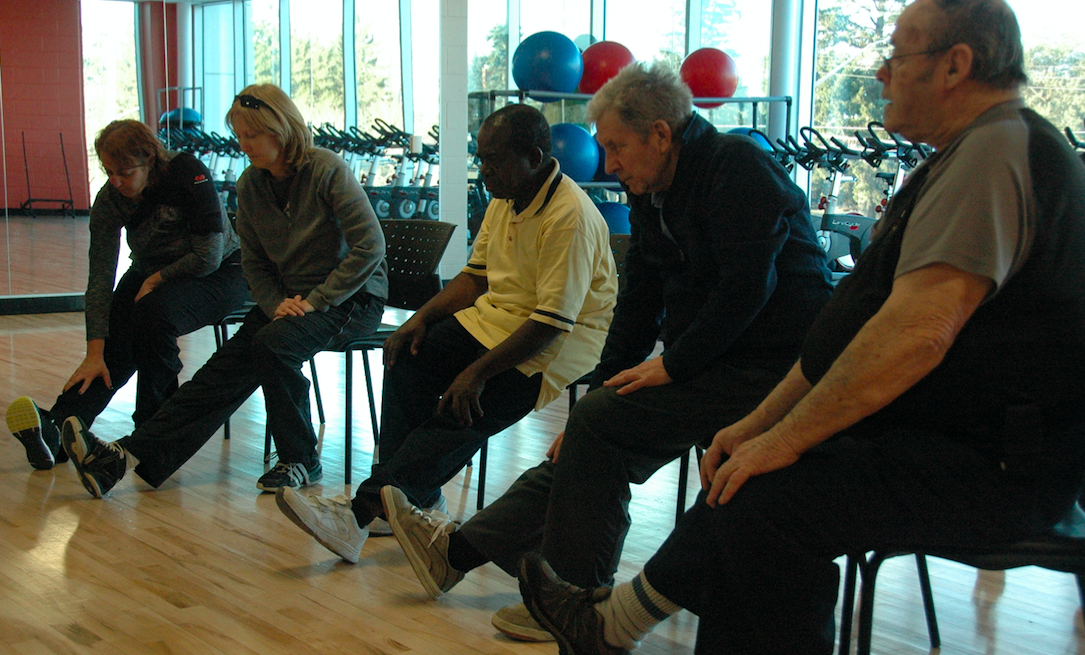
Participants in a community-based exercise program for stroke recovery, pictured above. More than 80% of Canadians survive a stroke. The vast majority of survivors are left with lasting physical, cognitive, and psychosocial impairments. Over the next 20 years the number of Canadians living with disability due to stroke is projected to double.
We are working on two major Brain-Canada-funded multi-centre clinical trials for stroke recovery.
Building on previous investments, CPSR matched a $1.5 million grant from Brain Canada in 2016 to create a national clinical trials infrastructure for stroke recovery research. In 2018, CPSR received Health Canada approval to conduct a clinical trial using this platform to test a combination therapy involving an anti-depressant and exercise to reopen the recovery window in the brain after stroke. Led by Dr. Mark Bayley of Toronto Rehabilitation Institute - University Health Network, infrastructure (hiring of personnel, development of standard operating protocols, etc) are being developed at eight Canadian sites, the trial protocol has been finalized, training is underway and CPSR plans to start enrolling patients in Fall 2018.
In 2017, CPSR assisted knowledge translation expert Dr. Ian Graham of the University of Ottawa to secure $1.2 million in funding from Brain Canada to launch “Stroke Recovery in Motion”, a national effort to put in place CPSR’s research-proven community-based exercise rehabilitation programs for people living with stroke. A program manager was recently hired and meetings have brought together researchers across Canada to plot the next steps.
We are supporting a national network to develop and standardize protocols for brain stimulation to promote stroke recovery.
The CPSR-supported Canadian Platform for Trials in Non-Invasive Brain Stimulation (CanStim) is an ambitious project to create a national multicentre network for clinical trials to study the effect of brain stimulation on stroke recovery.
Led by stroke neurologist Dr. Alexander Thiel of McGill University and Dr. Jodi Edwards, Director of the Brain and Heart Nexus Research Program at the University of Ottawa Heart Institute, CanStim is developing a consensus protocol targeting the use of transcranial magnetic stimulation for recovery of motor function. If successful, CanStim will offer a platform to test other brain stimulation modalities and protocols for the treatment of post-stroke deficits.
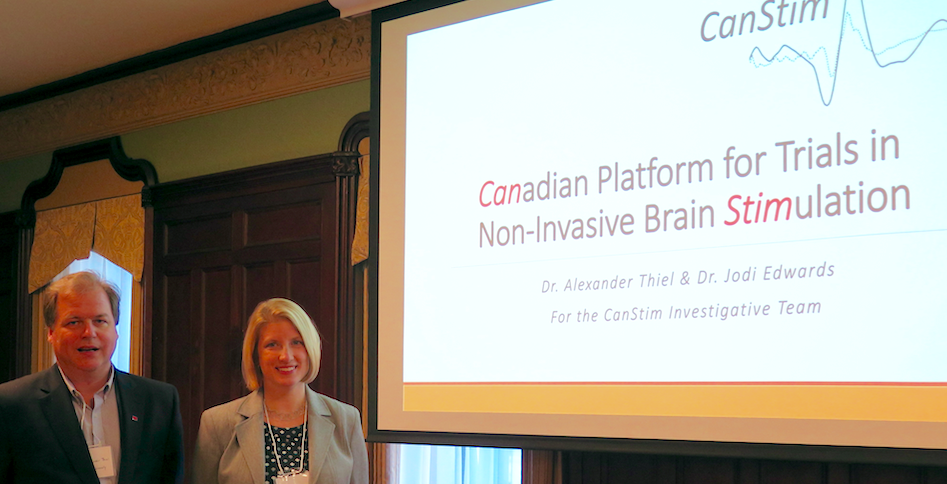
Neurologist Dr. Alexander Thiel, left, of McGill University, and Dr. Jodi Edwards, right, of the University of Ottawa Heart Institute's Brain and Heart Nexus Research Program, are leaders of the CanStim initiative.
We are developing and expanding tools to improve care across Canada, and to inform best practices around the world.
www.strokengine.ca, led by Dr. Annie Rochette at the Universite de Montreal, includes all the latest assessment tools for clinicians, research evidence on therapies for stroke recovery, best practices and e-learning modules. (For example, to date there have been 188 graduates of the e-AEROBICS course). The site segments content for different audiences, including allied health professionals, patients and families. Stroke Engine gets about 12,000 visitors a week.
www.EBRSR.com is led by Dr. Robert Teasell at Western University. Evidence-based Review of Stroke Rehabilitation, which recently released its 18th edition, feeds academic research and informs best practices. The EBRSR now includes in-depth reviews of well over 4,500 studies including 2,300 randomized controlled trials. Parts of the EBRSR have been translated into a number of languages. The Evidence-based Review has been used in the development of stroke guidelines in countries around the world and has been highlighted at many international meetings.
ViaTherapy app, created by Dr. Mark Bayley at Toronto Rehab and Dr. Steven Wolf of Emory University, was launched in 2017 (learn more at viatherapy.org) and was recently named one of the Top 5 rehab apps at the Association of Chartered Physiotherapists in Neurology (ACPIN) meeting held in Manchester, U.K. So far, 7,750 people have downloaded the app on the iTunes and Google Play stores. The free app provides best practice and evidence-based recovery interventions for upper extremity stroke rehabilitation. The Viatherapy team is in the process of integrating 23 videos into the app.
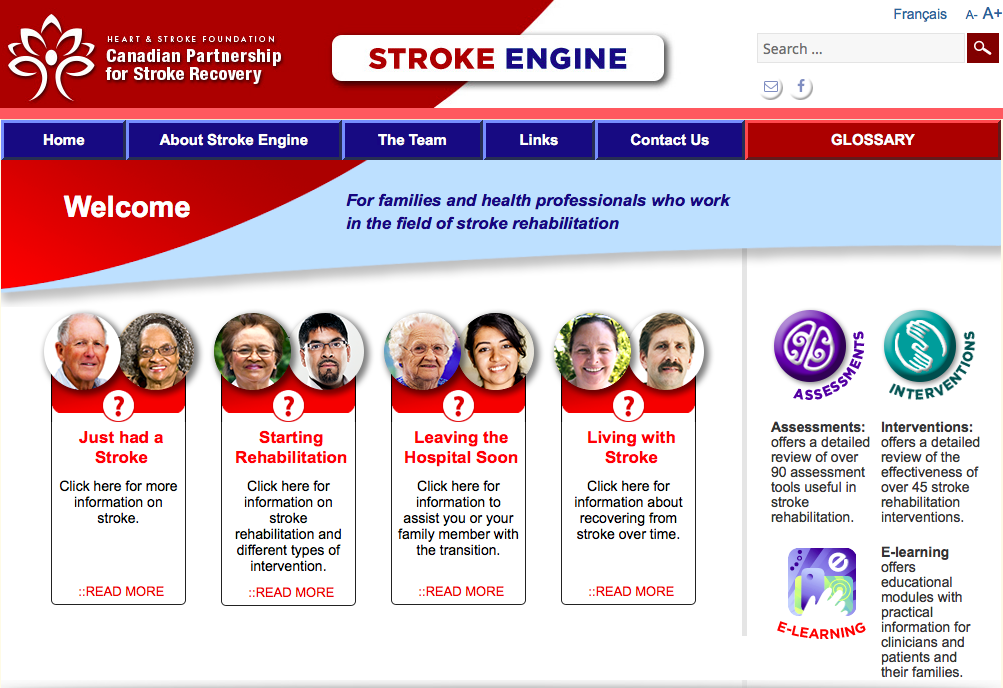
Stroke Engine is the go-to site for stroke rehabilitation interventions and assessments. It's e-learning module on AEROBICS guidelines has 188 graduates.
EBRSR.com released its 18th edition this year and has been used in the development of best practice guidelines around the world.
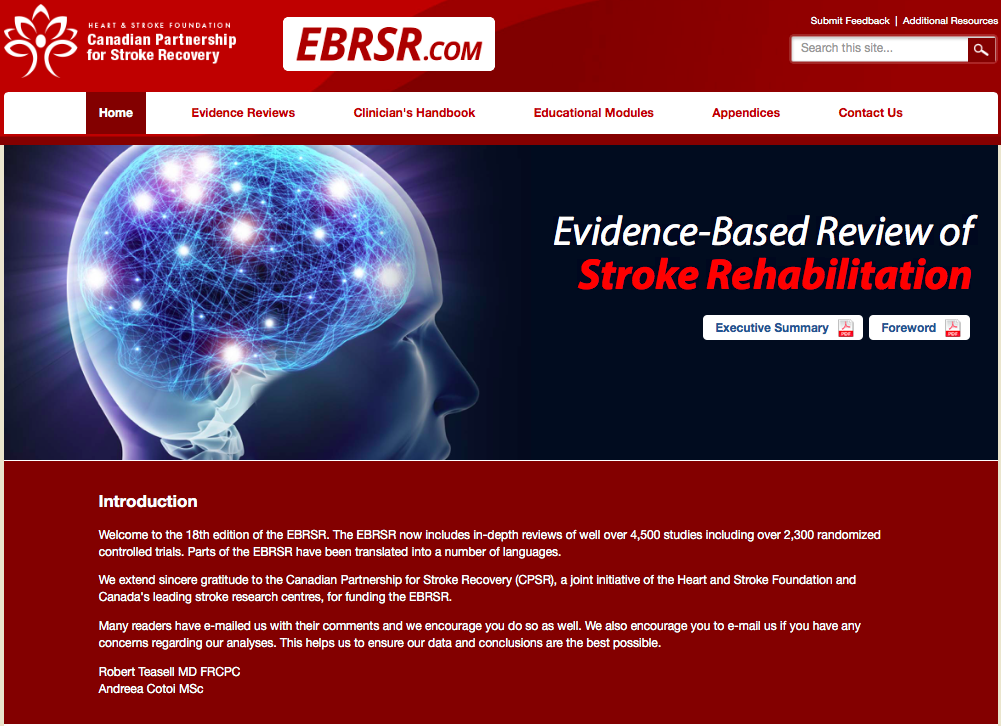
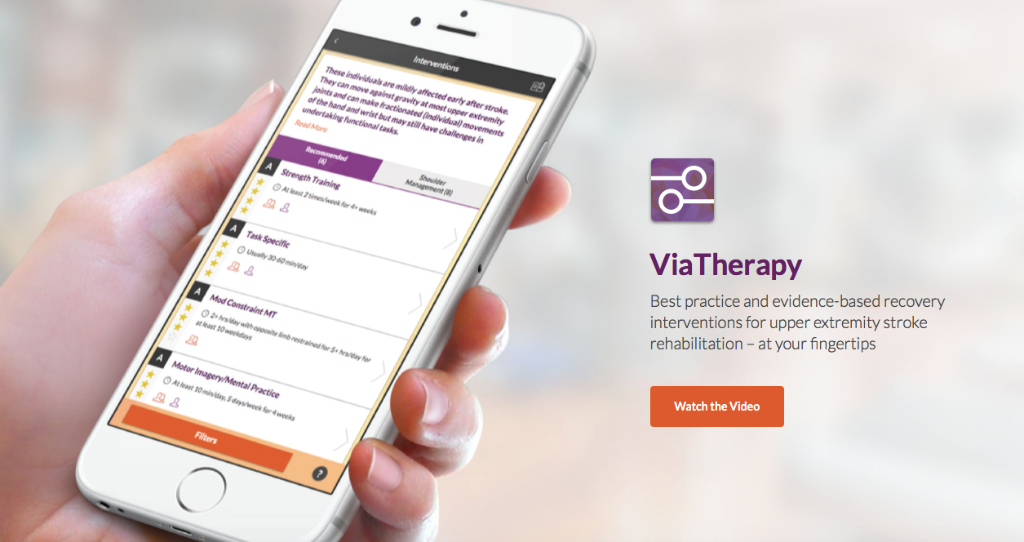
More than 7,750 clinicians have downloaded the ViaTherapy app, named one of the world's Top 5 rehab apps at a recent UK conference.
We are leading international collaborations to develop standards and improve stroke recovery research.
CPSR has been a leader in an international initiative called the Stroke Recovery and Rehabilitation Roundtable (SRRR), involving more than 60 researchers from 15 countries. The group recently published seven guidelines papers for the research community. Together, this group is defining best practice in stroke rehabilitation and recovery research and charting a path for innovative new approaches to some of the most complex challenges.
The next meeting of the SRRR will be held in Canada in the fall, immediately following the World Stroke Congress in Montreal, where there will be a strong focus on cognitive recovery.
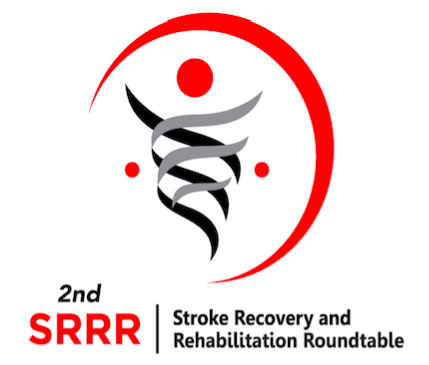
The Stroke Recovery and Rehabilitation Roundtable, which involves 60 international researchers, will hold its second meeting in Quebec following the World Stroke Congress in October, 2018. Members of CPSR's scientific leadership, including Drs Dale Corbett, Lara Boyd and Janice Eng, will be involved in the gathering.
We are studying new models of care delivery to find ways to provide access to optimal post-stroke rehabilitation.
CPSR researchers have published studies from our funded tele-rehabilitation projects that show technology is a viable and effective way to deliver care to people in rural and remote communities. Our researchers are also advocating for greater access to optimal care (most people do not get the adequate dose or duration of rehab), the improved flow of patients through rehabilitation units and increased accessto care, especially for people living in rural, remote and Indigenous communities. In addition, the CPSR-funded RecoverNow study, which uses tablet-based technology to deliver speech-language therapy to patients in hospital, has received funding from Heart & Stroke for a larger multi-site clinical trial.
Stroke neurologist Dr. Dar Dowlatshahi, on the right, CPSR site leader at the Ottawa Hospital Research Institute, is leader of the RecoverNow project, which uses tablet technology to deliver in-hospital speech-language therapy to stroke patients with aphasia.
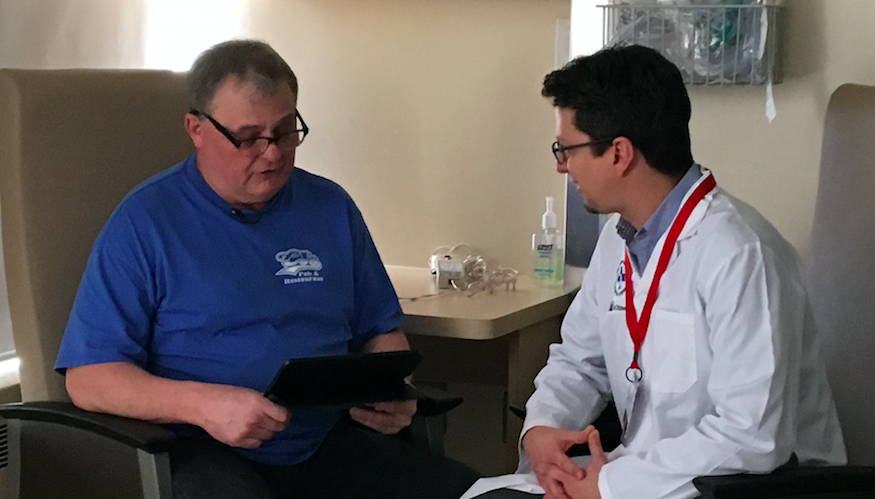
We bring together the best people in the field -- motivated by a passion to improve care within the context of a nimble, efficient organization.
The External Scientific Advisory Committee, under the leadership of Dr. Thomas Carmichael of UCLA, was revitalized in 2017-18 with new membership from Australia, New Zealand, the Netherlands and the UK. The Board of Directors added five new members, including Dr. Sylvain Charbonneau of the University of Ottawa, former Heart & Stroke Chair Rod McKay of Calgary, Debra Lynkowski of the Ottawa Hospital Research Institute, Dr. Andrew Demchuk of the University of Calgary, and Michael Young of Sunnybrook Health Sciences Centre. The Board also applauded the appointment of Dr. Mona Nemer, who retired as a CPSR director in the fall, to the position of Chief Science Advisor for Canada.
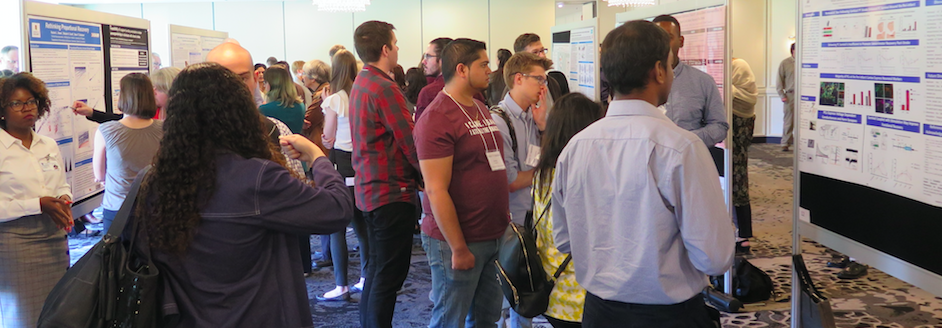
A poster session at the Annual Scientific Meeting in Gatineau in June provided insight into new research directions and generated lively discussion.
A very successful Annual Scientific Meeting was held in June in Gatineau, Quebec, with more than 100 attendees from across Canada participating in engaging presentations and a lively poster session. Attendees included Erin Zuber of our Stroke Community Advisory Committee, who shared her personal story of stroke recovery and provided encouragement to researchers.
Our management team, under the direction of CEO Katie Lafferty, ran an efficient and lean organization again this year. Read CPSR's audited 2017-18 financial statements.
We have the best stroke research training program in the country. And our investments are paying off.
There are more than 180 graduate and post-graduate researchers in our National Trainee Association, and our tracking shows that more than 80 per cent of them are staying in the field of stroke and making a difference. We nurture our trainees through our SPiN workshop, mentorship programs, monthly webinars, social media forums, and more. Here we introduce you to just a couple of our superstars.
Dr. Timal Kannangara, post-doctoral fellow at the University of Ottawa
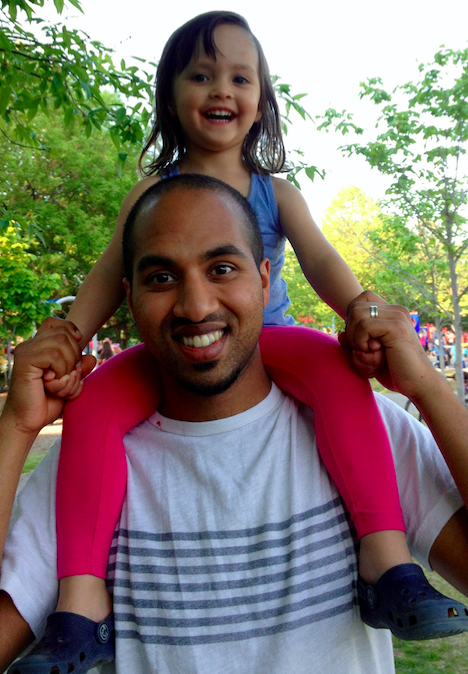
Dr. Kannangara developed a new technique, which allowed him to perform electrophysiological experiments on stem cells found in brain regions surrounding the stroke. His work demonstrated how stem cells found in the brain can connect to areas injured after stroke and contribute to stroke recovery. This work has led to additional projects to directly activate these cells, using a technique called optogenetics to see if these cells can directly influence recovery after stroke.
Outcome from 2017-18: 3 publications, 5 presentations, and helped to secure a 5-year $750K operating grant from CIHR
Dennis Riley Louie, doctoral student at the University of British Columbia
Riley Louie is an active member of the National Trainee Association. His research involves the study of a robotic exoskeleton to promote walking recovery after stroke. He recently published a paper that shows how a patient's balance scale score at admission can predict walking suitable for community ambulation at discharge from inpatient stroke rehabilitation.
Mr. Louie is the winner of a prestigious Vanier Canada Graduate Scholarship. Here he talks about the importance of the CPSR trainee award program to position recipients for other opportunities.
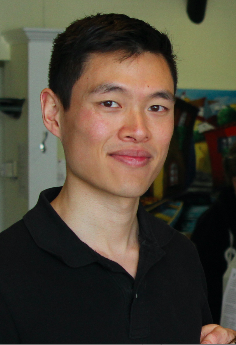
We have been shortlisted in the 2018 NCE competition and we are making the case for further investment in stroke recovery.
The CPSR is one of a small and select group of research networks shortlisted in the 2018 Network of Centres of Excellence competition. And we are making the case for further investment in stroke recovery. We believe the time to act is now because stroke rates are on the rise and the health-care system is not equipped to handle the increasing burden. There were 405,000 Canadians living with long-term disability from stroke in 2013, and the number is expected to double in 20 years.
While more Canadians are surviving stroke, about 60% are left with some disability and more than 40% are left with moderate to severe disability that requires more intense rehabilitation and support in the community. However, only 17% of people who have had a stroke are admitted to inpatient rehabilitation services, and outpatient rehabilitation is chaotic, desperately insufficient, and under-resourced. In fact, a recent Survey of Living with Neurological Conditions in Canada concluded that people living with stroke receive less support services than other neurological conditions.
As part of our application to the NCE, we are working hard to tell the story of stroke, the need for further research and the urgency for improved care for all Canadians. A decision on the funding is expected in late fall 2018.
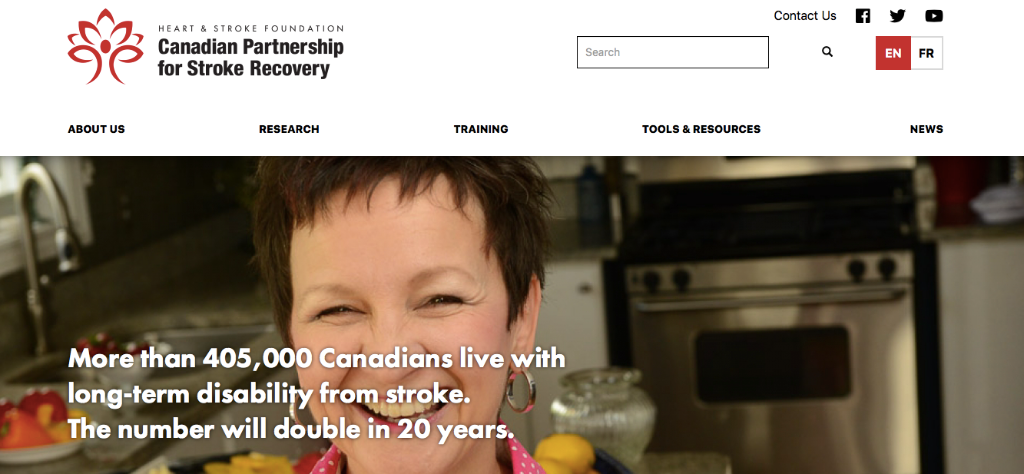
We are building community through communication and outreach efforts.
We are continuing to grow the stroke recovery research community through our newly-launched refreshed and revitalized website, as well as online tools and resources like Facebook, Twitter and our monthly e-newsletter. To learn more or subscribe, email info@canadianstroke.ca.
In addition to creating online connections, our researchers are sharing their discoveries at national andinternational conferences, public meetings and through webinars and lab tours, many of which are highlighted in our newsletters.
We also work closely with our partner Heart & Stroke to educate the public about the issue of stroke recovery. For example, CPSR researchers did dozens of media interviews around their research related to the 2018 Stroke Month report on the unique challenges facing women after stroke, and members of CPSR's Stroke Community Advisory Committee shared their personal stories as part of the Stroke Report.
As the problem of stroke disability continues to grow in this country and around the world, CPSR researchers remain resolved to develop innovative solutions, build community, and share new knowledge to benefit those living with stroke and their families.